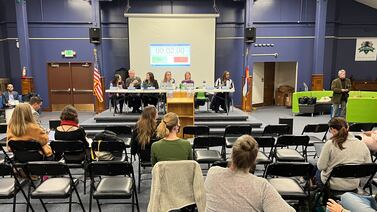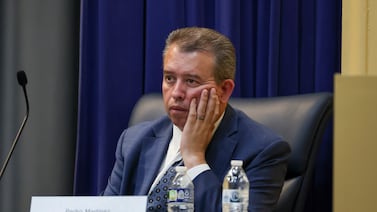Could Chicago be the latest city where principals unionize? The Illinois legislature is weighing a bill that would allow that to happen.
On Wednesday, the Illinois State Senate passed out of committee a bill that would clear the way for Chicago’s principals to join those of cities such as New York City, San Diego, and Denver where principals have unionized. Denver’s principals unionized last summer.
The effort in Illinois faces an especially large hurdle because of a state labor law that prohibits managerial employees from unionizing. House Bill 3496, which already passed the House Chamber and now heads for a second reading on the Senate floor, would amend the definition of a managerial employee to include only those district employees who have significant roles in the negotiation of collective bargaining agreements.
Unionizing would give principals more flexibility to make decisions in conjunction with their Local School Councils (LSCs), even when district leaders disagree with those decisions, testified Troy LaRaviere, president of the Chicago Principals & Administrators Association, a local affiliate of the AFL-CIO. Currently, Chicago principals are accountable both to LSCs and also to district leadership.
“Where else in the state do principals serve competing bosses that can demand things of them that are at odds with one another?” LaRaviere said during his testimony.
Chicago Public Schools opposes the bill. In the hearing, Matt Lyons, the district’s chief talent officer, pointed to the broad autonomy and authority of CPS principals within their schools and questioned how the role could be defined as less than managerial.
Lyons also referred to another brewing battle between the city and labor leaders: pending changes to the composition of the district’s school board. The Chicago Teachers Union and a coalition of community organizations favor a 21-member, elected school board, while Mayor Lori Lightfoot is pushing a hybrid plan that would include some elected members while retaining a majority who are appointed by the mayor.
“Making principals part of labor while retaining their management responsibilities raises a lot of questions,” Lyons testified. “How will [the reconstructed] board expect school administrators to faithfully carry out the educational policies that it enacts, with all the discretion [principals are] given, if the principal’s union is in opposition to that same policy?”
The bill passed out committee by a 9-5 vote, but both its final form and fate in the General Assembly are uncertain. Sen. Celina Villanueva (D-Summit), the bill’s sponsor, told the committee she was discussing amendments with Chicago Public Schools. The bill would only apply to cities with populations greater than 500,000, limiting it to Chicago.







